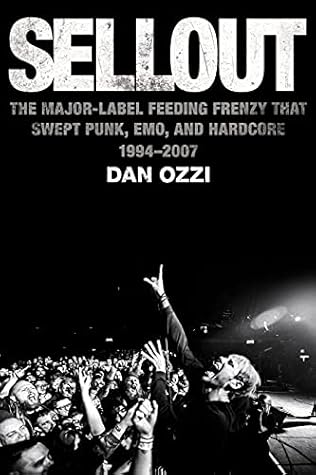More on this book
Community
Kindle Notes & Highlights
by
Dan Ozzi
Read between
April 16 - August 15, 2022
Armstrong’s songwriting was at a personal peak, with each of the album’s fifteen songs touting one perfectly crafted hook after another. Leaving behind the love tunes he’d written in his teenage years, he was now grappling with the confusion that came with entering adulthood—confronting his mental health, his bisexuality, and the ugliness of the world in front of him. It was a coming-of-age record for a slacker generation. Armstrong brought another “Christie Rd.”–style ballad about his girlfriend moving to Ecuador to the sessions, but it didn’t fit thematically. The song wouldn’t be released
...more
“Mark Kates called me and said, ‘Do you want to meet with Jawbreaker? They’re a really cool band. They’re one of Kurt Cobain’s favorite bands and they opened for Nirvana on a leg of their tour,’” remembers Cavallo. “I heard their demos and thought to myself, Oh jeez, this is a whole new kind of rock. I don’t even know what the fuck to call this! I don’t know if they’d called it emo yet, but that was part of the birth of emo right there.”
discovered later on that major labels know exactly what to do with a band that’s selling thirty thousand records a week. They’ve got that. They had no idea what to do with us, who, for our combined releases, probably sold two thousand copies of everything put together.”
“Watching Jim Adkins is one of the most thrilling things I have ever seen,” says Israel. “Performing a song in the studio, performing it live, he constantly strives to connect the emotion, the music, the meaning of the lyrics, everything. He’s absolutely mesmerizing.”
But then, for a brief moment, it seemed as though Jimmy Eat World might finally be getting their shot. The most accessible single from the album, “Lucky Denver Mint,” was released via an EP on independent label Fueled by Ramen and started getting airplay on KROQ. The song was also pitched for a new Drew Barrymore rom-com, Never Been Kissed. Capitol was suddenly moved to schedule Clarity for a release date.
Blink tried their hand at playing their first handful of songs in public and got the reception they more or less expected. “The very first show we ever played was a bar called the Gorilla Pit,” says Hoppus. “It was a weeknight, and we drove in and it was me, Tom, Scott, and Cam, who was a friend of ours that we skated with. We loaded in and there was literally the bartender and one patron sitting at the bar. He said we could set up on the stage. We set up and started playing the first song. After the first song the bartender said, ‘Hey, please turn it down.’ So we turned it down. We played
...more
But it was the imperfections that became Thursday’s calling card, as if the band had accidentally stumbled into a style that sounded just wrong enough to be right.
“Somehow Geoff had gotten my address and he showed up at my door at midnight after the show,” he says. “He was like, ‘Hey, we’ve got this new record. I really want you to hear it!’ He handed off a copy of Full Collapse that they’d recorded but wasn’t out yet. He was just so proud of it. I had never heard anything like it. Most of the hardcore and emo that I’d heard had a really different sense of dynamics. The first thing I noticed, as a huge fan of the Cure, was that there were more new-wavy guitar elements, not just the heavy, chugging stuff. It just stunned me. We listened to the hell out
...more
“Lyor and I flew out to Chicago to meet with Tony in August of 2001. He didn’t really know how hot we were for Thursday at that point. He was talking about this band Student Rick, as if they were gonna be the thing. I kept my mouth shut. You could tell he didn’t know what he had with Thursday, because he had no fucking ears.”
“This is the tragedy of all this DIY punk shit, that everyone has to pretend like they don’t want it,” says Lazar. “For a scene that prides itself on authenticity, it’s such a bunch of fucking bullshit.”
War All the Time’s first-week showing was strong, though. The album sold 74,000 copies and debuted at number seven on the Billboard 200 chart on October 4, 2003—one slot below Beyoncé’s Dangerously in Love. For Thursday, these were milestones beyond anything they’d ever imagined. Their little hardcore band had crawled their way out of the basements of a college town in New Jersey to make a top ten record. “It’s sort of surreal. It doesn’t even make sense to me,” Rickly told Billboard that week.
“He had me come into the office to play him the singles, and made me wait a really long time, which is fine. I figured he was busy. I didn’t think he was making me wait as a power play,” Rickly says. “I come in and sit down and he asks me about the record, and as soon as I start talking, he opens up a newspaper and starts reading it in my face. And I was like, ‘Oh, this meeting is to show that we’re not important because we didn’t play ball.’ Once I got that, I had to laugh. Because the thing about L.A. Reid is, his desk was on a raised pedestal so he’s always above you. This is his whole
...more


